April 24, 2025
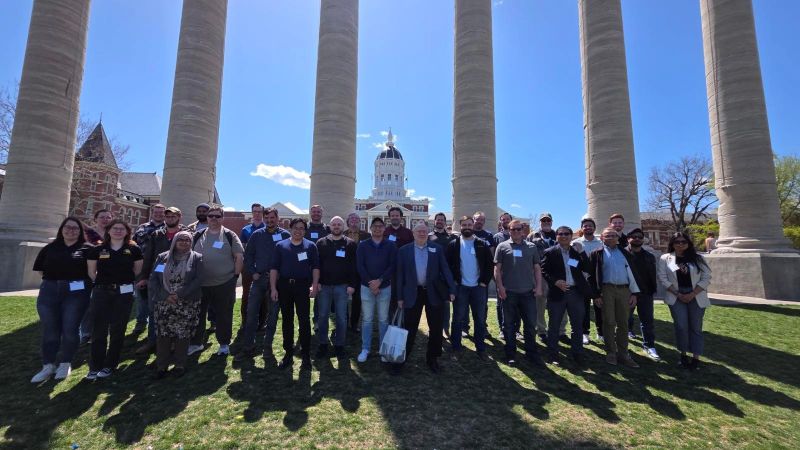
On April 9-10 in Columbia, Missouri, Mizzou hosted a hands-on microelectronics training program designed to expand professionals’ knowledge and improve skills on semiconductor technology and microelectronics.
The program offered an innovative approach to learning, blending immersive virtual reality experiences, real-world lab tours and insightful lectures to give participants a comprehensive look at how microchips are made and used.
Several industry leaders traveled to Columbia to lecture on their areas of specialization in the field. Shantanu Chakrabartty, the Vice Dean for Research and Graduate Education at Washington University in St. Louis, spoke about his semiconductor work regarding advanced sensing technology and front-end processing.
“Semiconductors are everywhere,” Chakrabartty said. “They’re the new oil. They are in every infrastructure that we work with.”
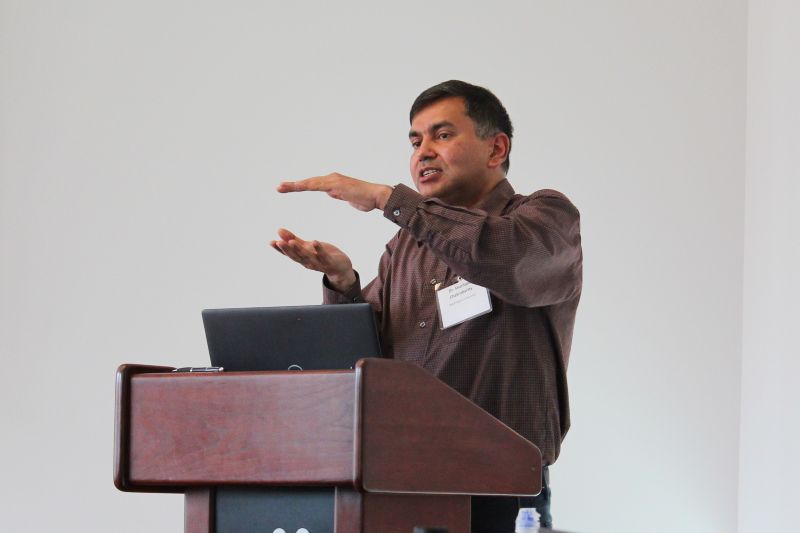
Alexander Usenko from the University of Missouri-Kansas City talked about silicon processing and new opportunities in the microelectronics industry, and Omiya Hassan, Assistant Professor at Boise State University, presented information on low-power integrated circuit design.
One of the major highlights of the program was the use of virtual reality headsets to teach students about the intricate process of microchip fabrication. Through VR simulations, participants were able to explore the intricate world of semiconductor manufacturing, from the complex handling of circuit boards to the complicated construction and handling of microchips.
The VR modules provided an interactive, 3D understanding of complex topics like creating silicon wafers, etching them with electronic components, and finalizing them through deposition and metalization, all of which are essential steps in the creation of modern microchips.
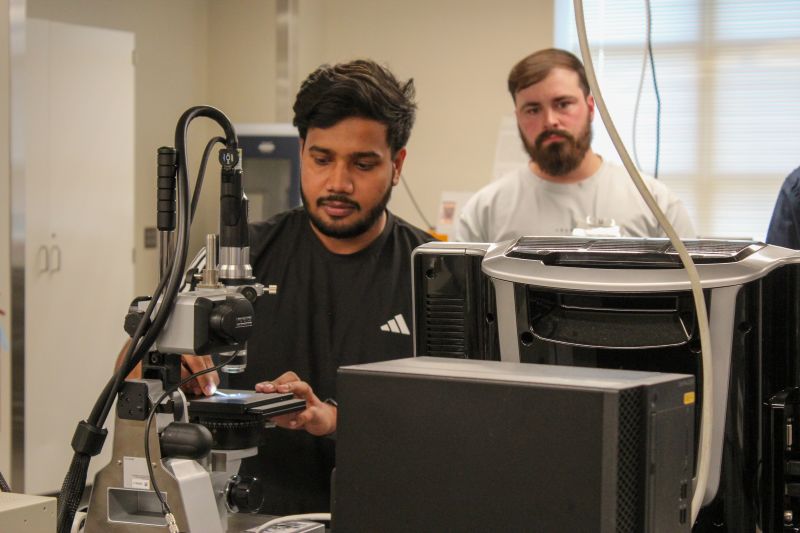
Fang Wang is the director of the Collaborative Research Environments for Extended Reality (CREXR) Lab.
“We actually have multiple disciplines working together,” Wang said. “We have the education (department) adding their input into how people actually learn effectively in the virtual environment.”
This immersive experience allowed participants to visualize processes that are typically too small to observe in a traditional classroom or too expensive to be simulated en masse, making it easier to grasp difficult concepts and see how various steps connect to create a functional chip.
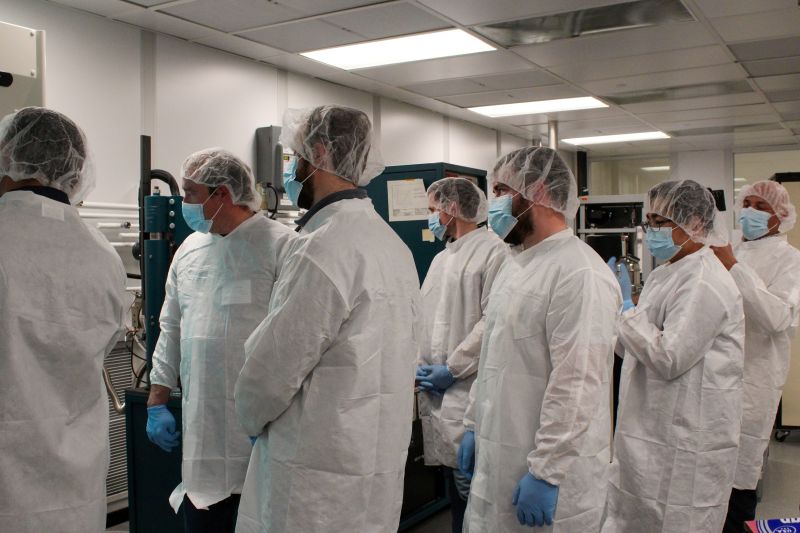
In addition to the virtual components, participants also toured Mizzou’s state-of-the-art engineering labs dedicated to microelectronics research and manufacturing. The tour included a visit to the university’s cleanrooms and fabrication labs, where actual tools and equipment used for making microchips were demonstrated.
Attendees saw equipment such as mask aligners, deposition chambers, plasma etchers, and inspection microscopes up close. Faculty and professionals guided participants through demonstrations, explaining how each tool contributes to the fabrication process and emphasizing the precision and cleanliness required when working at such tiny scales.
Throughout the program, participants had the opportunity to engage in hands-on activities that reinforced what they learned from invited guests, the VR training and the lab tour. They practiced designing basic circuit layouts and learned about the challenges engineers face when trying to make smaller, faster and more energy-efficient chips. The program also included discussions about the future of microelectronics and opportunities in the industry, as well as experiences in the new industry 4.0 lab where participants learned about industrial automation and smart manufacturing.
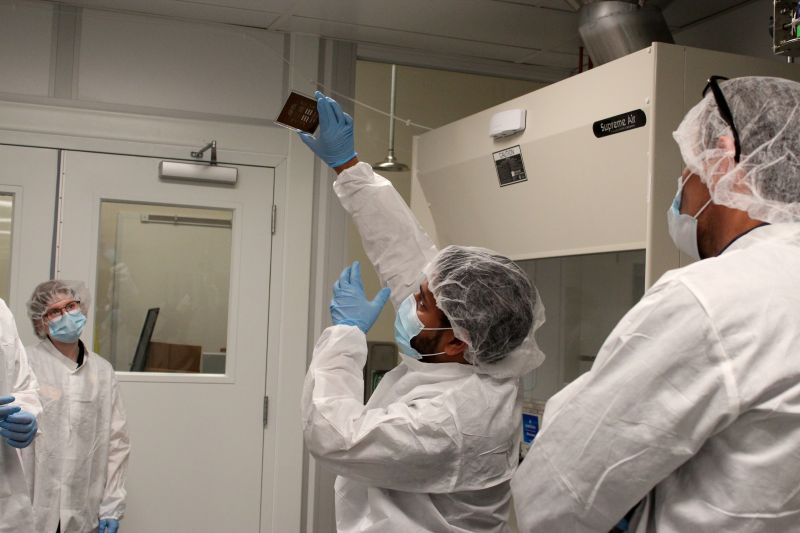
“Right now, there is a shortage of expertise, and everyone understands and agrees to that,” Chakrabartty said. “[We] try to make sure that folks, starting from high school, undergrad, all the way to grad school, get an exposure of okay, this is an area that you can get into.
“There is a universal acceptance that this area is cool,” he said. “There’s a coolness factor associated.”
The MU Microelectronics Training Program provided a dynamic professional development training to industry professionals interested in expanding their knowledge of microelectronics. The training program was funded by the National Science Foundation and organized by Mizzou Engineering, MU Institute for Data Science and Informatics, Missouri School of Journalism, MU School of Information Science and Learning Technologies and MU Extension Career Accelerator.
Learn more about engineering research at Mizzou.